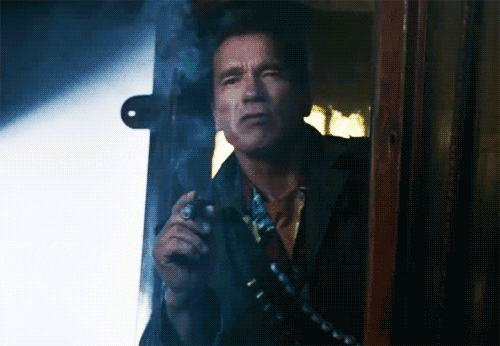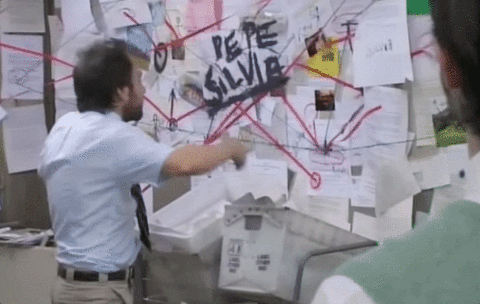Lessons and ramblings from 18 months of sabbatical-ish life
Most people think of someone as successful when they win a game, whatever game they play themselves. [...]
To me, the real winners are the ones who step out of the game entirely, who don’t even play the game, who rise above it. Those are the people who have such internal mental and self-control and self-awareness, they need nothing from anybody else.
(I hope you’ll still hear me out after this somewhat self-congratulatory intro quote 😁)
When I quit my last full-time job almost exactly 18 months ago, I didn’t know how this quote would represent my sabbatical journey, but it ended up as somewhat of a guiding light, even if not always explicitly clear. I’ll try to explain how and promise to do my best not to glamorize this seeming sabbatical trend but to shine an honest light on its perks and challenges. I also want to emphasize how privileged I feel to even write about this topic, as so many others have way bigger worries.
Enough.
Let’s jump into
- Why I quit my previous job
- What the hell I did with all this free time (spoiler: it’s not all fun and games)
- How I slowly ventured back into serious life
- What I’m up to next (I’m back in the game, yeya!)
How did I land here (again)?
Over the years, I’ve identified a driving “fear” of mine is to live life on auto-pilot. Letting inertia get the best of me and mindlessly rolling from one day into the next. And into the next. And so on. And all of a sudden (or so I’ve been told), 10 years pass and you’re coping with your mid-life, quarter-life, or whatever-crisis of choice. It’s not all bad though – being in the “flow” and cruising through life is generally desirable, at least for periods of time. Overall, however, I feel too many people live an unexamined life on cruise control.
I don’t want this. I want to live life with agency. With clear eyes and a full heart. I want to savor many moments, big and small, along the way. I want to let my curiosity roam, but also leave space for boredom. I want to play multi-player, positive-sum, long-term games with like-minded people.


In December 2020, as Germany was heading into its second Covid wave and I was just getting accustomed to working from home (again), I realized how my life was very much trending in the auto-pilot direction. Although I enjoyed working at my previous employer, Via and drew purpose from attempting to reinvent public mobility together with amazing colleagues, I was left with little time and even less head space to explore my natural curiosities outside work. I was in a comfy spot, yet craved for change. At similar crossroads in the past, I had learned to appreciate the forced self-examination that typically comes with taking intermittent breaks. Something like
“Work Hard, Rest (and Reflect!) Hard.”™
So, after embracing and giving in to this ambiguous yearning for something new, the time felt ripe to step out of the game of chasing promotions and recognition, create breathing space, and take stock. So I quit my job. I had no idea how long I would need to “figure myself out”, but I aimed for about 3-4 months (in hindsight: lol).
Sidebar: Unemployment benefits in Germany
One upside to paying >40% in income taxes in Germany is quite
generous unemployment benefits, even when quitting voluntarily –
I retained full health insurance and received ~55% of my previous
net salary for up to 9 months.
Congrats, you’re “free” – now what?
When explaining to anyone that I was “currently not working” – a challenge in itself to communicate elegantly without sounding like an entitled prick – I was always asked how I was spending all this glorious free time. Everyone had their personal views on how they would utilize it: wake up early, meditate, do yoga, go for a walk, write a blog post, declutter life, eat clean, work out, socialize. The perfect mix of personal, physical, and social growth. Your parents and all your friends would be proud and impressed! And yes, I had exactly these action items on my list as well but was quickly hit hard (as usual) by reality. These routines and projects are far easier to dream up and envision yourself doing, than actually doing them. The reality for me resembled much more attempting to tackle one area in one week and then simply trying to repeat it the following week. Accountability only towards yourself is hard.
Prime example: My envisioned weekly (lol) blog turned into a monthly-ish blog turned into three posts overall and then losing motivation. 🤷

Expectation management (internal and external)
The biggest challenge by far turned out to be the internal struggle between justifying this time off to yourself, your friends, and even the fictional taxpayer resenting you for not doing your part and contributing to society. Am I really making the best of this time? Am I reflecting enough? Am I figuring out my future if I am watching football highlights on Youtube? Shouldn’t I volunteer my skills somewhere in Sub-Saharan Africa? Where are the draft business plans for the venture I have been talking about forever? I distinctly remember feeling an internal clock ticking louder and louder around the 4-month mark that seemed to urge me towards doing something of value. Something I can share later on. Something to impress.
But!☝️ I also reminded myself that I signed up for this, nobody made me do this. I want this. I don’t owe any profound experience to anyone and I don’t have to justify my choices to anyone. I started embracing boredom and felt my life slow down. I walked 100s of kilometers through Berlin listening to random Podcasts. More importantly, I tried to listen closely to that elusive and allegedly wise inner voice. And at some point, I realized what I really wanted to do was take this opportunity to reconnect with the people important to me. I wanted to reach out to the ones I hadn’t spoken to in a while and see if there was still a “spark” there. I wanted to meet up for coffee at their convenience, visit friends where they currently were and fly to the US and visit my family. Take a lavish 6-week trip with my girlfriend to Kenya and Tanzania or spontaneously join a group of friends on a trip to Ibiza. And so I did that.
[Insert GIF about me being a basic millennial valuing “experiences” over possessions]
And in hindsight, after overcoming initial doubts, I think I managed quite well in not caring too much about how this time was perceived by others. I managed to truly enjoy myself for a period of time without pressuring myself to put on an act.
Ok, time to get serious (at least try)
I’m convinced that no matter how laid back and carefree of a person you are, there comes a point at which just “enjoying” yourself and living moment to moment doesn’t feel right anymore – for some it might be 2 weeks and for myself, it might be more like, *ahem*, 9 months. We are habitual animals and most of us strive for some sort of routine or structure in our lives. I remember reaching this point sometime in September, during my travels with my girlfriend. As good of a time as I was having, I needed to switch it up and do something again. But where to start? I had a vague idea of wanting to go into the Blockchain sector, an industry that had fascinated me for years, but in which I barely had any track record, credentials, or connections. I also imagined myself starting my own company, mainly because it sounds pretty cool and I felt ashamed for talking about it for years and never actually having tried it myself. Whoops.

As I was half-heartedly evaluating my options, a good friend with whom I worked together at Via, Estelle, asked me if I wanted to join her new Fintech venture, topi. Due to the immense respect I hold for her, I was immediately intrigued. But I also had doubts: Was I again postponing figuring out and going after my goals in exchange for following the path of least resistance (i.e. the opportunity right in front of my eyes)? So I was grateful to Estelle and her Co-Founder Charlotte for hiring me in a part-time role with a fancy-sounding title to evaluate the crypto potential in topi’s business model. It enabled me to build some credentials and connections in the Blockchain space while preserving time for me to explore other ideas. This somewhat unusual part-time arrangement was made possible partially by our shared trust and respect. However, it was also made possible by an age-old business saying: Everything is negotiable. (But you first have to ask).
Sidebar: mini-reflections on part-time work @topi
Working a part-time role felt natural, yet eye-opening at the same
time. I cherished the experience but also identified challenges
around time management and cultural integration with the rest of the
team. Overall, it felt like a glimpse into a desirable working model
for my future. Also, being part of the first handful of people at a
venture-backed startup represented an exciting experience shaped
primarily by the super ambitious, smart, caring, and humble people
that Estelle and Charlotte assembled at topi. They will go places
and I recommend them to the fullest.
(topi is, of course, hiring)
Alongside my work at topi, I carefully broadcasted that I was considering starting my own business. It was fascinating to see how this message spread in my small circle and to what extent friends were willing to help with introductions. One friend introduced me to their friend, who introduced me to the next person, and soon enough, I found myself having 5-10 weekly “casual coffee chats” with somewhat random, yet extremely interesting people. I wonder if I wasn’t mentally committed enough or didn’t put in the necessary effort, but no potential idea truly captured my excitement. After ~2 months of this co-founder speed dating, I once again shelved the idea of starting my own venture. But who knows, maybe next time around? 🤷♂️
Therefore, I once again found myself prepping for actual job applications: Cleaning up my online profiles, refreshing my CV, scouring through job newsletters, and prepping for interviews by creating a somewhat cohesive story of who I am, what I can do, and what I want to do.
Interviewer: “So, tell me a bit about yourself”
Me (23 minutes later): “…so yes, it’s been a journey, but probably my experience of setting up lemonade stands in elementary school is a key predictor for my success in this [RandomRole] at [RandomStartup]!”

What’s next?
Deciding in which industry or job you want to work is a fascinating process. It is so multifaceted and complex to match your skill set, ambition, lifestyle & work preferences with the needs and preferences of prospective employers in front of the backdrop of macro-economic & industry dynamics. Adding to the complexity: Many of these factors are non-trivial/impossible to evaluate and predict while carrying different weights of influence and importance for each of us.

In fact, this decision is so complex, that I’ve observed many people simply resort to choosing whichever job falls into their lap. While somewhat understandable, it’s also kind of wild. Especially when you consider the impact this decision has on your life.
Looking back, I’ve mostly approached my job searches in a top-down fashion (consultants, rejoice!):
- Start with
revolutionary technologieswhich I’m excited about and hold the potential to be a force for good, while guesstimating their technological maturity. I ended up with: 🤖 AI, 🔮 Quantum Computing, ☢️ fusion/fission energy, and of course, ⛓ Blockchain. - Break down the industry to find the
leading players/ most promising entrants. - Within these companies,
apply for intriguing roles(for which I ideally also bring a semi-fitting skill set), but also attempt todirectly reach out to employeesand pitch myself. Evaluate all the softer factors(mission, vision, values) during interviews to gauge the forever-elusive “cultural fit”.
The main (but not unsolvable) challenge in my situation is that as a Sci-Fi fan I am drawn to futuristic and far-out solutions to grand problems, but my business background rarely fits the engineering skill set most in demand by these firms. Nevertheless, I’ve started embracing my generalist profile and brought myself to believe that I can always contribute to the success of a firm, even if it sometimes necessitates a bit more convincing.
⛓ Blockchain it is!
As a prerequisite, all industries I’m interested in hold massive potential, but I realized I am best positioned to create value in the Blockchain space, an industry I’ve been fascinated by since 2016. Here, I have the strongest “edge” compared to most of my peers and I see the clearest path and timeline to mainstream adoption.
Within the Blockchain space, I have long been fascinated by the category of infrastructure projects, such as Ethereum, which serve as the foundation for the entire ecosystem to build upon – the highways, airports, stock exchanges, and canalizations. Within this general orientation, I wanted to work at a firm deeply aligned with the ethos and values of Ethereum: decentralization, freedom, and open access. On top, I was yearning for a company culture defined by ownership, creativity, speed, focus, apoliticism, and bs-intolerance. I wanted to work within a group of colleagues that function like a professional sports team, not like a family.
A family is about unconditional love. A dream team is about pushing yourself to be the best possible teammate, caring intensely about your team, and knowing that you may not be on the team forever. Dream teams are about performance, not seniority or tenure. It is up to the manager to ensure that every player is amazing at their position, plays effectively with others and is given new opportunities to develop.
- Netflix's philosophy on forming a dream team
I believe I have found this and more at Matter Labs. ML is building a “Layer-2” to scale Ethereum (“make cheaper and faster”), without compromising on the security or decentralization of Ethereum itself. Serving as an extension of Ethereum, Matter Labs aims to create a truly independent and unbiased base layer for an internet of value. It could enable bringing (economic) freedom to billions of people – a fascinating vision. My contribution will lie primarily behind the scenes, where I will be optimizing operations to help build a company that scales and runs well while attracting and retaining the best talent.
Check out the team handbook and reach out to me if you are curious about any of the roles!
Finding a directionally correct path
In our ever-complex world in which potentially hundreds of quasi-optimal/exciting/viable paths exist, one can quickly get overwhelmed by sheer choice. As I tend to fall into analysis paralysis by over-questioning my approaches to find THE perfect path, I had to force myself to commit to A path in which I had reasonable confidence it was directionally correct by being aligned with my values, circumstances, and goals.
It might be impossible to know your perfect path, but it is possible (and crucial!) to periodically reorient yourself and ensure you’re not completely off-track.
Summarizing my life-playbook
Play the game
Step out of the game
Reorient
Step back into the game 🤡
Big shout-out and thank you to Livia, Philipp, and Micha for being patient editors and thought partners.
